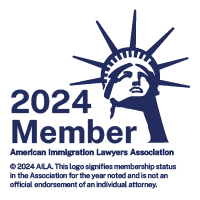H-1B Visas for Physicians
The H-1B visa is frequently used and relied upon to allow an individual to work in the USA for a specific employer at a particular location in a “specialty occupation.” The U.S. Citizenship & Immigration Service (USCIS) defines “specialty occupation” as one which requires theoretical and practical application of a body of specialized knowledge along with at least a bachelor’s degree or its equivalent. For example, architecture, engineering, mathematics, physical sciences, social sciences, medicine and health, education, business specialties, accounting, law, theology, and the arts are specialty occupations.
The petition for an H-1B visa must be filed by an employer willing to offer a foreign national a job in a specialty occupation at a wage at least as high as the prevailing wage in the area for the particular position. The H-1B visa will only allow for employment at the location(s) specified in the petition and Labor Condition Application forms in the position described in the petition for the petitioning employer. Changes in the location of employment, employer, or position will usually require new H-1B petition filings.
To apply, the employer must first file a Labor Condition Application (LCA) with the Department of Labor that attests to the payment at an amount equal to or greater than the prevailing wage, the lack of a current strike or lockout, that the working conditions of others will not be negatively affected by the employment of the H-1B employee, and that the notice of the LCA filing was given to the appropriate union official or posted. After the LCA comes back, approved by the DOL, the H-1B visa petition can be filed with USCIS.
The law currently requires the employer to pay the fees associated with the H-1B , including the attorney fees and costs and filing fees which include payments to the US Dept. of Homeland Security of a $325 base filing fee, a $1500 ($750 for employers of fewer than 25) training fee (unless it is an exempt organization or the case qualifies for an exemption), and a $500 fraud detection and prevention fee. The CIS usually takes approximately two (2) to four (4) months to adjudicate an H-1B visa petition. The adjudication process, however, can be trimmed to fifteen (15) days, with the use of “premium processing,” for which service the CIS charges an additional $1225 fee.
Upon completion of its adjudication of the H-1B visa petition, the USCIS will either approve the petition, request additional evidence, or deny the petition. Upon approval, a new H-1B employee can begin work. If an individual is already in the USA on an H-1B visa with another employer, he/she can start work with a new H-1B employer once the new H-1B visa petition is filed, rather than waiting for approval of the new H-1B petition, if H-1B status has been maintained with the first employer.
An H-1B visa can be valid for maximum periods up to three (3) years, with a total maximum period allowed of six (6) years. Extensions of up to three (3) years, until the maximum total time has been reached, are available. The law now allows for extensions beyond the sixth year where either an immigrant petition (I-140) or labor certification is pending for 365 days or more. Those extensions can be granted in one-year increments until a final decision is reached on permanent residence.
There are a number of special requirements that physicians coming to the USA to work on an H-1B visa in a clinical setting must meet for the approval of an H-1B visa petition. They include:
- U.S. licensure in the state of employment;
- Either a full/unrestricted license to practice in another country or completion of an M.D. degree from a medical school in the USA or another country;
- Passage of either:
- USMLE Steps 1,2, and 3,
- FLEX I and II, or
- NBME Parts I, II, and III; and
- Passage of an oral and written English competency test (ECFMG English Language Test) or graduation from an accredited US or Canadian (LCME only) medical school.
Based on the added requirements that physician H-1B visa applicants face, it is always wise to do as much advance planning as possible. Understanding that the US state license may take some time to obtain and that the LCA must be approved prior to the filing of the H-1B visa petition can improve the attitude of all involved.
The H-1B is a very helpful visa for both American businesses and foreign national workers. When processed efficiently and effectively, the visa can benefit all concerned.



